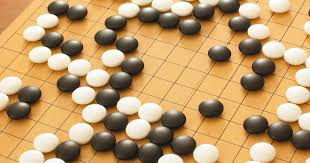
Breaking News
 Quantum walkie-talkie: China tests world's first GPS-free radio for border zones
Quantum walkie-talkie: China tests world's first GPS-free radio for border zones
 RIGHT NOW!: Why was lawyer Van Kessel, of the civil case on the merits in the Netherlands, arrested?
RIGHT NOW!: Why was lawyer Van Kessel, of the civil case on the merits in the Netherlands, arrested?
 PENSION FUNDS PANIC BUYING SILVER – Ratio Below 60 Triggers $50B Wave (Danger Next Week)
PENSION FUNDS PANIC BUYING SILVER – Ratio Below 60 Triggers $50B Wave (Danger Next Week)
 Dollar set for worst year since 2017, yen still in focus
Dollar set for worst year since 2017, yen still in focus
Top Tech News
 EngineAI T800: Born to Disrupt! #EngineAI #robotics #newtechnology #newproduct
EngineAI T800: Born to Disrupt! #EngineAI #robotics #newtechnology #newproduct
 This Silicon Anode Breakthrough Could Mark A Turning Point For EV Batteries [Update]
This Silicon Anode Breakthrough Could Mark A Turning Point For EV Batteries [Update]
 Travel gadget promises to dry and iron your clothes – totally hands-free
Travel gadget promises to dry and iron your clothes – totally hands-free
 Perfect Aircrete, Kitchen Ingredients.
Perfect Aircrete, Kitchen Ingredients.
 Futuristic pixel-raising display lets you feel what's onscreen
Futuristic pixel-raising display lets you feel what's onscreen
 Cutting-Edge Facility Generates Pure Water and Hydrogen Fuel from Seawater for Mere Pennies
Cutting-Edge Facility Generates Pure Water and Hydrogen Fuel from Seawater for Mere Pennies
 This tiny dev board is packed with features for ambitious makers
This tiny dev board is packed with features for ambitious makers
 Scientists Discover Gel to Regrow Tooth Enamel
Scientists Discover Gel to Regrow Tooth Enamel
 Vitamin C and Dandelion Root Killing Cancer Cells -- as Former CDC Director Calls for COVID-19...
Vitamin C and Dandelion Root Killing Cancer Cells -- as Former CDC Director Calls for COVID-19...
 Galactic Brain: US firm plans space-based data centers, power grid to challenge China
Galactic Brain: US firm plans space-based data centers, power grid to challenge China
In a Huge Breakthrough, Google's AI Beats a Top Player at the Game of Go

Machines have topped the best humans at most games held up as measures of human intellect, including chess, Scrabble, Othello, even Jeopardy!. But with Go—a 2,500-year-old game that's exponentially more complex than chess—human grandmasters have maintained an edge over even the most agile computing systems. Earlier this month, top AI experts outside of Google questioned whether a breakthrough could occur anytime soon, and as recently as last year, many believed another decade would pass before a machine could beat the top humans.
But Google has done just that. "It happened faster than I thought," says Rémi Coulom, the French researcher behind what was previously the world's top artificially intelligent Go player.
Researchers at DeepMind—a self-professed "Apollo program for AI" that Google acquired in 2014—staged this machine-versus-man contest in October, at the company's offices in London. The DeepMind system, dubbed AlphaGo, matched its artificial wits against Fan Hui, Europe's reigning Go champion, and the AI system went undefeated in five games witnessed by an editor from the journal Nature and an arbiter representing the British Go Federation. "It was one of the most exciting moments in my career, both as a researcher and as an editor," the Nature editor, Dr. Tanguy Chouard, said during a conference call with reporters on Tuesday.



